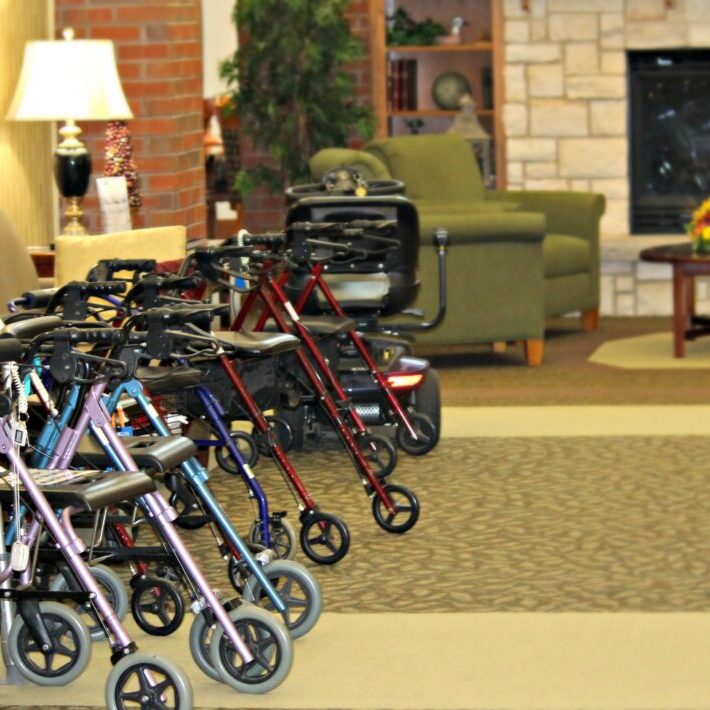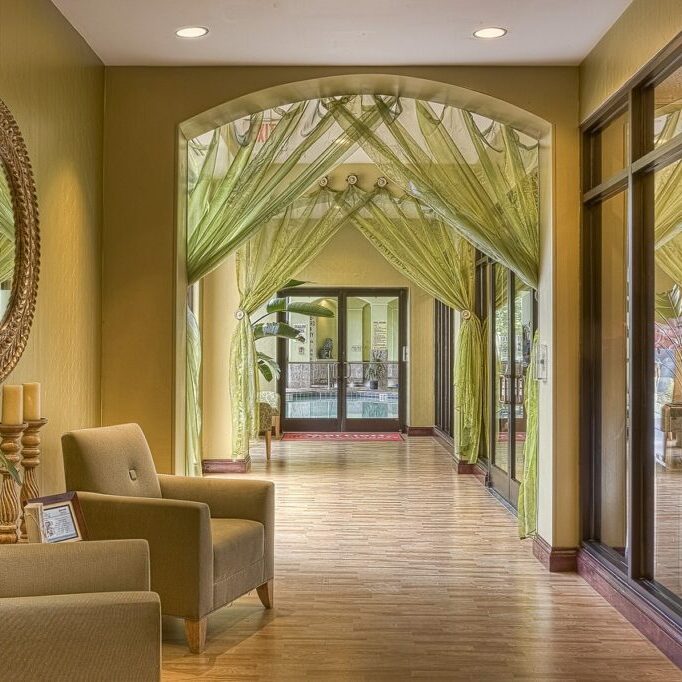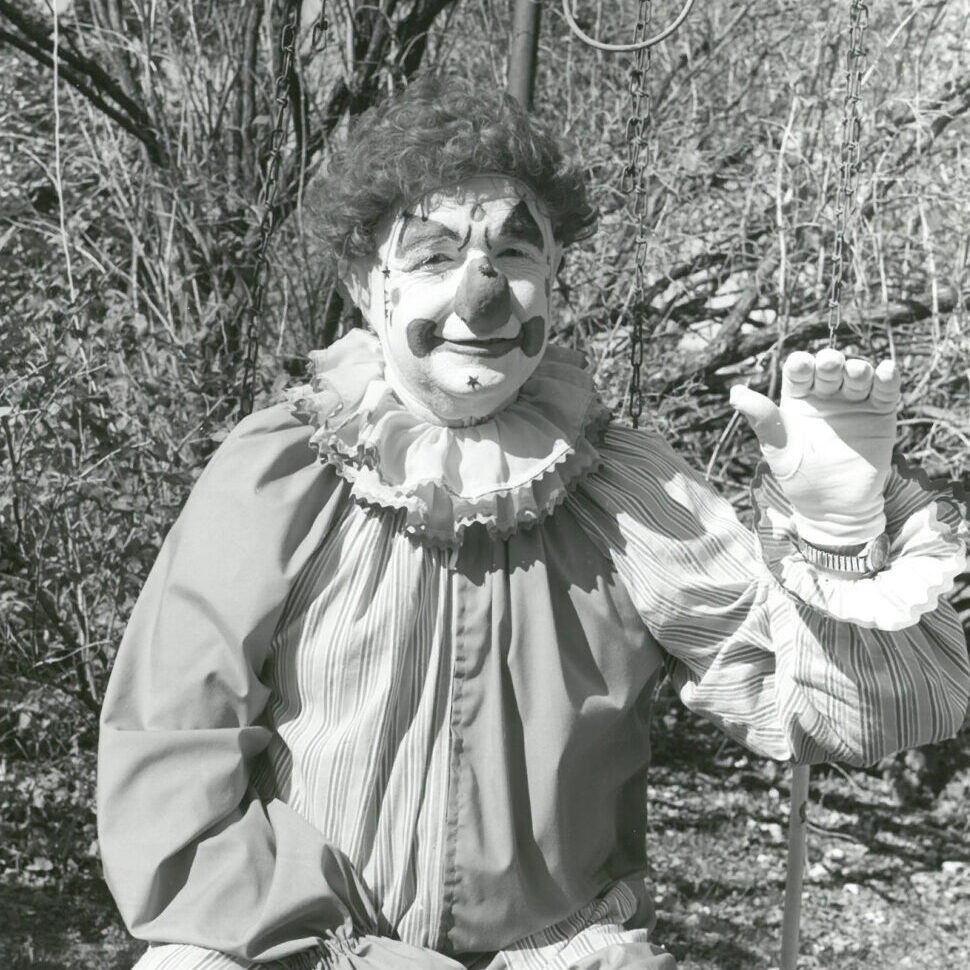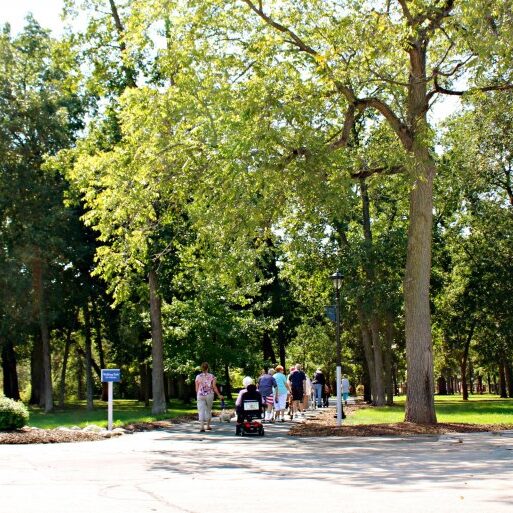Choosing the Best Memory Care Facility
It is difficult to watch a family member struggle with memory loss due to dementia or Alzheimer’s disease. Those experiencing memory loss often eventually require 24-hour care in order to remain safe and healthy. This can be overwhelming for an at-home caregiver.
A memory care community is equipped to handle the needs of those with memory loss while keeping them active and engaged as their disease progresses. Sometimes, memory care is offered as a specialized service or wing within an assisted living facility. Other times, they are separate communities that only provide services to those whose primary need is memory support.
A good memory care community should provide treatment and protection, while also allowing residents a safe level of independence. Common services provided by memory loss facilities include:
- 24-hour supervision and care
- Monitoring of medical conditions
- Assistance with daily tasks
- Comfortable environment that is easy for residents to navigate
- Enriching, personalized programming and activities to suit all levels of abilities
The transition to a memory care community can be incredibly difficult for the one suffering and those around them. It is incredibly important to choose the right community so your loved one receives the care they need.
What to Look For in a Memory Care Facility
When trying to find the right memory care, there are many questions to ask. Asking the right questions will ensure that the place you choose for your loved one meets their needs and makes them comfortable.
How Secure is the Facility?
Security is a major concern in memory care facilities. It should be secured 24/7 and have several back-up protections to prevent residents from leaving unsupervised, which could jeopardize their safety.
While security is crucial in keeping residents safe, it is also important that the residents have a level of independence. Great memory care facilities have secure access to outdoor areas, allowing residents to go outside without the risk of getting lost or putting them in danger.

What Activities are Provided for Residents?
Therapeutic activities have been proven to improve the quality of life for those with memory loss. Engaging in regular activities to enhance physical, social, emotional, spiritual, and intellectual wellness can keep the mind active and prevent symptoms from continuing to decline. A great memory care facility will offer daily activities for residents to enjoy, stimulate their brain, and stay engaged.
Because each resident is different, their diseases progress differently. While structured activities are very important, each resident should have a personalized schedule that is customized to their unique wants and needs. Activities at a memory care community might ebb and flow depending on the day and how the resident’s schedule unfolds that day.
A balance of structure and personalized flexibility is key at a memory care community.
What Additional Treatment and Assistance is Offered?
People with memory loss may also experience additional ailments associated with aging. Memory loss facilities may be able to handle the treatment of other conditions that your loved one is suffering from as well.
If there are other health concerns, check if the community provides treatment for those issues. Make sure it will be easy for them to meet with doctors regularly. If transportation will be required to see their doctor, see how this will be handled in order to reduce the amount of stress placed on your loved one.
What Training is Required of Caregivers?
Individuals with memory loss often have more needs than a typical resident at assisted living. The professionals working with those in a memory care unit need extensive training to meet the needs of these patients.
When looking at memory care, ask about the qualifications the facility requires of the staff, and about any in-house training or continuing education they receive.

How Will the Memory Care Community Help in the Transition?
Transitions to new environments are hard for anyone, and they can be particularly straining for a person experiencing memory loss. It can be hard for them to find connections to their past when they are out of their familiar home.
Ask how the memory care team typically deals with these transitions. Ensure that they have a plan in place to ease your loved one’s transition into this new environment.
Choosing the Best Memory Care Environment
Finding the right memory care community for an aging family member can be challenging as you seek the right environment where they will receive the skilled care they need in order to live a safe and happy life.
Trust Your Instinct for the Right Fit
Knowing your loved one’s needs, asking the right questions, being informed on what to look for, and following your instincts about the best fit will lead you to the right facility. Throughout the process, remember that peace of mind awaits you, as you’ll know your loved one is being properly cared for by qualified caregivers as their disease progresses. If we can ever be a resource to you, don’t hesitate to contact us.




